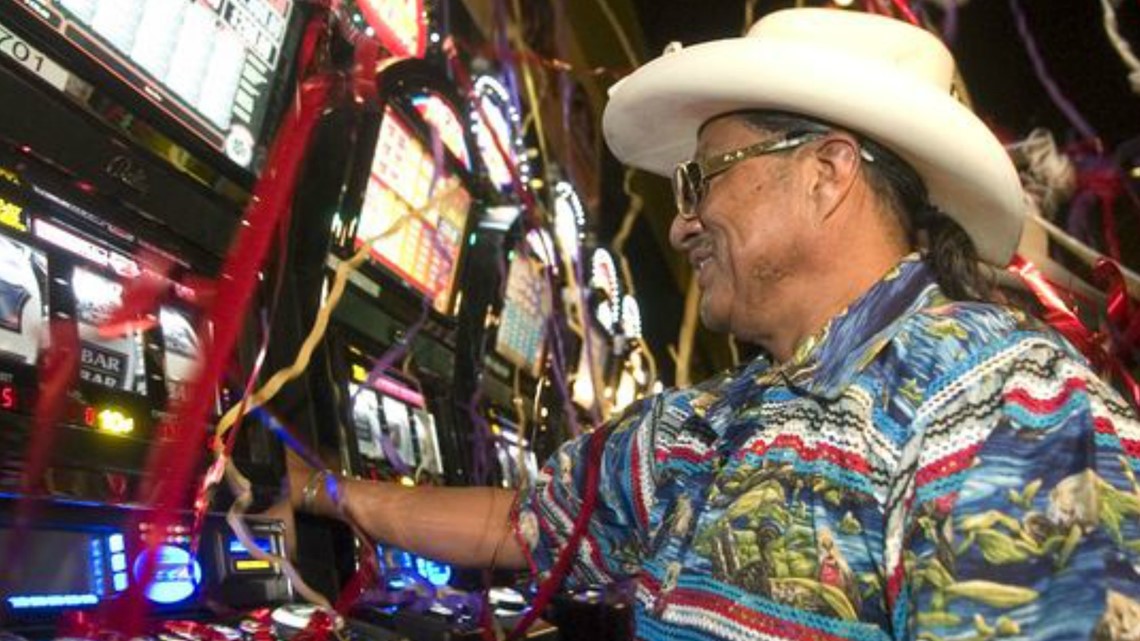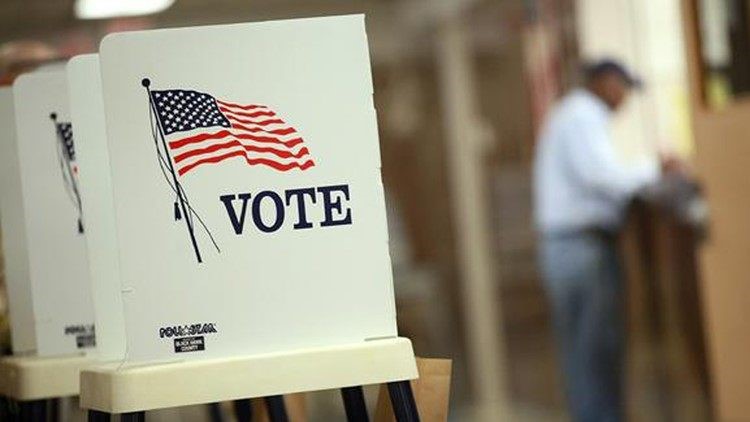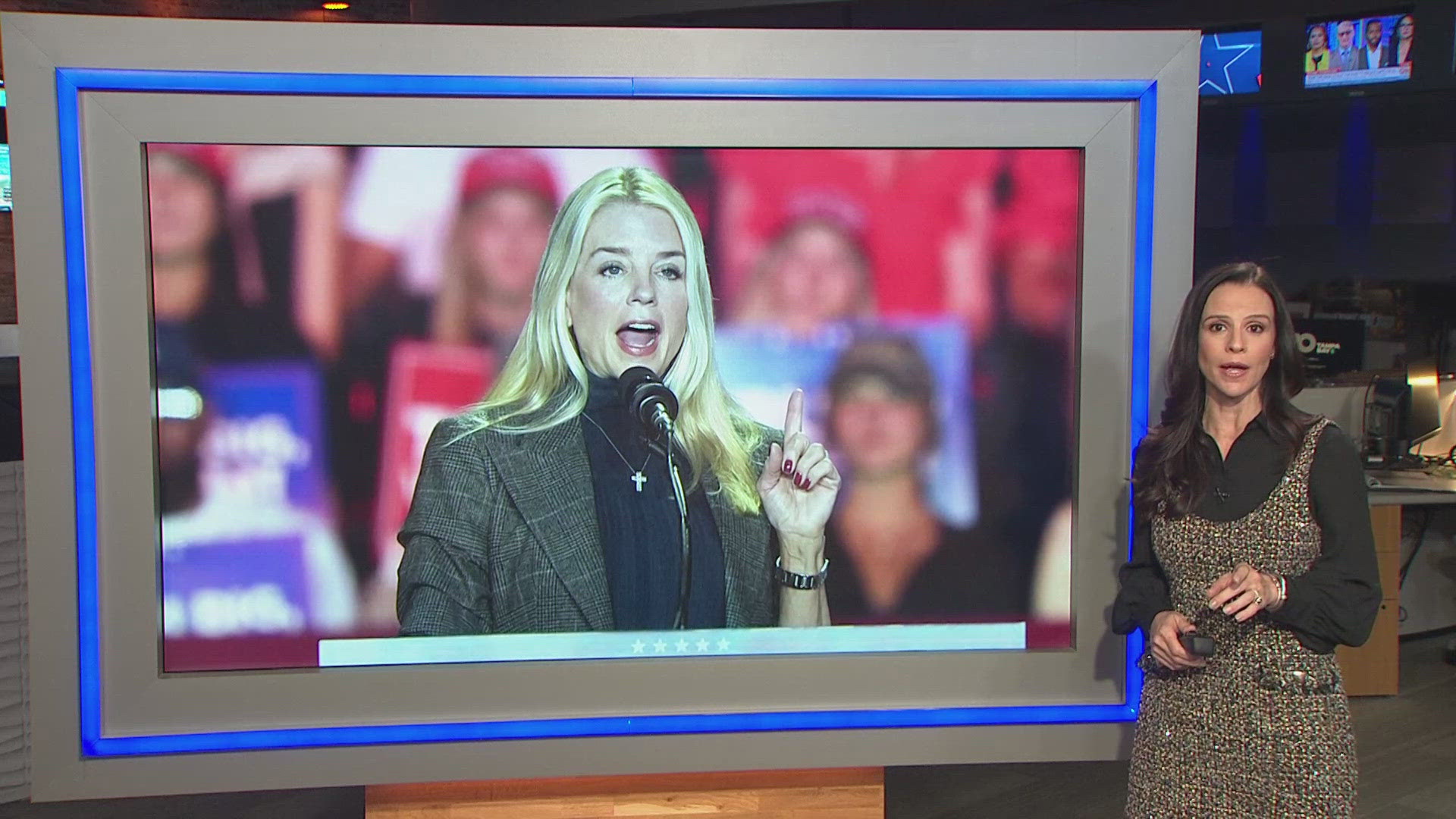Voters will be faced with 12 constitutional amendment proposals on the Nov. 6 ballot. Each needs at least 60 percent of votes to be enshrined in the Florida Constitution.
Amendment 8 related to charter schools and term limits for school board members will not appear on the ballot because it was stricken by the Florida Supreme Court.
Below is a summary of what the remaining proposals aim to accomplish, with the full ballot language available at the Florida Department of State.
Amendment 1
This amendment raises the homestead property tax exemption by $25,000 for homes worth more than $100,000. That would exempt the value between $100,000 and $125,000 of a home that serves as the owner's primary residence.
Currently, there are two other homestead exemptions: for the first $25,000 of the assessed property value and for the value between $50,000 and $75,000.
Who supports it: Republicans in the state Legislature, who put the measure on the ballot because it would lower taxes for almost 60 percent of homesteaded properties.
Who opposes it: Groups that advocate for local governments, such as the Florida Association of Counties. Cities, counties and special districts across the state would lose an estimated $752.7 million in their budgets in the first year (school districts would not be impacted). The association claims the measure could force local governments to increase tax rates and commercial and non-homesteaded properties might pay more. Government watchdog group Florida Tax Watch also opposes the measure for similar reasons and estimates 76 percent of all property owners in Florida would not benefit from it.
Amendment 2
This proposal permanently places a 10-percent cap on the annual increase of non-homestead property tax assessments. This amendment wouldn't change current law, but it puts protections in place so exorbitant increases don't impact renters, business owners and consumers.
What owners of non-homestead properties face, should the amendment fail, is paying taxes on the full value of properties, beginning in January 2019. This could translate into higher costs for renters, financial burdens for those on fixed incomes, increased costs for consumers who shop at businesses and more costs for those who own undeveloped land. Projections show a potential tax increase of about $700 million each year.
Who supports it: Florida Tax Watch, small businesses and the Florida Association of Realtors.
Who opposes it: The League of Women Voters of Florida because of the group's position that no tax revenue should be prohibited in the Constitution.
Amendment 3
This amendment gives voters the exclusive right to decide whether a new casino can open in the state. It takes that right away from the Florida Legislature, which has failed in recent years to reach an agreement on the issue.
The amendment would categorize card games, casino games and slot machines as casino gambling, and require anyone who wanted to build a casino to get hundreds of thousands of signatures to get it on the ballot and then hope for voter approval. This would make it more difficult for any dog track or horse track wishing to expand its gaming to do so.


Currently, the Seminole tribal compact, agreed to in 2015 with the state, gives casinos exclusive rights to operate craps, roulette, black jack at its five properties.
The amendment was placed on the ballot after the anti-gambling expansion group Voters in Charge collected more than 766,000 validated voters' signatures.
Who supports it: Seminole Tribe of Florida and Disney because the amendment would make it harder to expand gambling. The two groups have spent nearly $40 million campaigning for Amendment 3.
Who opposes it: Owners of dog and horse tracks because they would need statewide voter approval to add casino gambling at each track.
Amendment 4
The amendment restores voting rights to former felons who served their sentence, including parole and probation, with the exception of those convicted of murder and sexual offenses. Currently, former felons must wait at least 5 years after completing their sentences to ask the Florida Clemency Board, made up by the governor and the Cabinet, to restore their rights.
A U.S. district judge found Florida's current system arbitrary and unconstitutional in March, and the case is under appeal. If passed, Amendment 4 would impact 1.5 million Floridians. Florida is one of four states that disenfranchises former felons permanently.
Who supports it: The more than 799,000 voters whose signatures were certified on a petition by the group Floridians for Fair Democracy to place Amendment 4 on the ballot; the conservative group Koch Brothers and ice cream company Ben & Jerry's.
Who opposes it: The group Floridians For A Sensible Voting Rights Policy because, while Amendment 4 excludes felons convicted of murder and sex crimes, it doesn't differentiate between people who committed other violent crimes and those who committed non-violent crimes.
Amendment 5
This amendment would require a two-thirds vote in the Florida House and Senate — instead of a simple majority — to raise taxes. It was placed on the ballot by the Legislature with the intent to make it more difficult for lawmakers to raise taxes.
This amendment does not apply to local taxes that might be raised in specific counties, cities or other taxing districts, such as school or fire districts. The amendment also stops a typical legislative technique of adding tax and fee increases onto other legislative bills.
Who supports it: The Florida Chamber of Commerce and Florida Tax Watch.
Who opposes it: The Florida Policy Institute, Progress Florida, League of Women Voters of Florida and Florida Education Association.
Amendment 6
The Constitution Revision Commission bundled together three separate issues in Amendment 6. It would:
• Expand the scope of victims' rights under the Florida Constitution. While many of these rights already are enumerated in state statutes, Amendment 6 would significantly expand, and delineate, an array of victims' rights, including victims' rights to due process; freedom from intimidation and abuse protection from the accused and protections for victims if bail is granted. The proposal, modeled after Marsy's Law in California, also would set deadlines to complete state appeals, allow victims to request additional rights and provide victims with access to sentencing reports.
• Raise the mandatory retirement age of Florida judges, including Supreme Court justices, from 70 to 75.
• Prohibit state courts from deferring to an administrative agency's interpretation of a state statute or rule.
Who supports it: Many Florida sheriffs and victim advocacy groups that believe courts have gone too far defending the rights of the accused.
Who opposes it: Criminal defense attorneys, who fear giving victims a role in court proceedings would create an emotional rather than a legal process, and the League of Women Voters of Florida because the amendment would remove a provision that victims’ rights do not interfere with the constitutional rights of the accused.
Amendment 7
The Constitution Revision Commission bundled together three separate issues in Amendment 7. It would:
• Enshrine in the state Constitution the mandatory payment of death benefits and waiver of certain educational expenses to qualifying survivors of certain first responders and military members who die performing official duties. Currently, law enforcement officers, corrections officers, firefighters and members of the National Guard are provided death benefits under Florida law. This proposal would add paramedics, emergency medical technicians and U.S. military members residing in Florida to the list.
• Require supermajority votes by university trustees and state university system board of governors to raise or impose legislatively authorized fees if the law requires approval by those bodies.
• Establish the existing state college system as a constitutional entity and provide a governance structure for such.
Who supports it: The Association of Florida Colleges because it recognizes state colleges, formerly called community colleges, in the state Constitution.
Who opposes it: The Florida League of Women Voters of Florida because the group opposes a supermajority vote to raise fees and taxes, and because members of the military who die in the line of service are already compensated through the federal government.
**Editor's Note: Amendment 8 related to charter schools and term limits for school board members. The Florida Supreme Court struck it from the ballot due to confusing language.
Amendment 9
This is a Florida Constitution Revision Commission proposal that bundles two measures under the auspices of clean water and clean air.
• The waters most immediately adjacent to Florida’s coastline are in state control, then become federal jurisdiction farther offshore. This amendment pertains just to state-controlled water, prohibiting oil and gas drilling for exploration or extraction in offshore areas. It doesn’t block transport of oil or gas from federal territorial waters through state waters to Florida’s ports.
• The second part of the amendment prohibits the indoor use of e-cigarettes and vaping devices. The amendment doesn’t restrict the use of these devices inside private residences (unless they’re used for child or health care) nor in standalone bars or hotel rooms where smoking is allowed.
Who supports it: Many Florida environmental groups and The League of Women Voters support the amendment based on the offshore drilling protections.
Who opposes it: Among opponents is the Florida Chamber of Commerce, which suggests these issues can be addressed by the Legislature. A former Florida Supreme Court justice is among those legally challenging the bundling of this and other amendments. The case is on appeal.
Amendment 10
This is a Constitution Revision Commission proposal that rolls four separate government regulatory proposals into one amendment that would:
• Require the Legislature to start its annual session in January instead of March during even-numbered years. That’s because these are election years; an earlier start means lawmakers can finish before May.
• Create a counter-terrorism and security office within the Florida Department of Law Enforcement.
• Require the state to have a Department of Veterans Affairs, which already exists.
• Require that all 67 counties must elect their sheriff, tax collector, elections supervisor and clerk of courts. (In Leon County, these positions are already elected.) Several Florida counties now have at least one of these positions appointed based on home-rule charters, such as Miami-Dade County, whose top law enforcer is appointed, not elected.
This amendment was legally challenged but the Florida Supreme Court left it on the ballot in an early September ruling.
Who supports it: The Florida Sheriffs Association, Florida Tax Collectors Association, Florida Association of Property Appraisers, Florida Court Clerks & Comptrollers are among the supporters.
Who opposes it: The League of Women Voters, which says most provisions already are current practices, so it’s a veiled attack on home rule based on the election requirement.
Amendment 11
This amendment has three parts:
• Florida’s Constitution currently has language that allows the Legislature to prevent non-citizens from buying, selling, owning or inheriting property. Amendment 11 would delete this language.
• Florida’s Constitution added the “Savings Clause” in 1885 and is one of only three states that enforce one. This clause forbids making changes to criminal sentencing laws retroactive. For example, if the Legislature changes a mandatory minimum sentence for an offense from 20 years to five years, anyone still being prosecuted for or already convicted of that offense would still have to serve 20 years. Amendment 11 repeals the Savings Clause.
• Deletes language approving a high-speed rail. Floridians voted down the high-speed rail project in 2004, but the language was never removed.
Who supports it: The Florida Chamber of Commerce and Asian-American groups, which have pushed to repeal alien land laws enacted in the 1910s and 1920s to prevent Asian immigrants from owning property. Gun rights groups support repealing the Savings Clause in hopes that will make retroactive a change to the "stand your ground" law that put the burden of proof on the prosecution instead of defendants in pre-trial hearings.
Who opposes it: A lawsuit filed by former Supreme Court Justice Harry Anstead claims Amendment 11 violates voters’ First Amendment rights by bundling three unrelated issues and that the measure is misleading. A Leon County judge ruled in September the measure be struck from the ballot, and the state has appealed it.
Amendment 12
It expands ethics rules for public officials — both elected officials and government employees, including judges. The new rules are complex, but essentially they ban officials/employees from lobbying the state and federal government during their terms of office/employment and for 6 years after (currently the rule is 2 years). Amendment 12 also prohibits these officials from using their position for private gain.
Who supports it: Government watchdog group Integrity Florida and other ethics organizations.
Who opposes it: The Florida Chamber, which claims these issues should be addressed through the legislative process.
Amendment 13
The proposal ends commercial greyhound and other dog racing by 2020, but people in Florida would continue to wager on races occurring in other states. Forty states ban the activity and Florida, West Virginia, Alabama, Arkansas, Iowa, and Texas are the only ones where dog racing is legal and operational. Racing has been dying, but Florida law requires tracks to race dogs in order to keep their license to offer more profitable card games and slot machines, which they still would be able to offer if Amendment 13 is approved.


Who supports it: GREY2K USA Worldwide, a greyhound welfare group that helped push the Constitution Revision Commission to add Amendment 13 to the ballot. The group says racing causes a high number of dog injuries and deaths and points to dogs that have tested positive for drugs such as cocaine.
Who opposes it: The Florida Greyhound Association, which represents the state's 12 track owners. The group filed a lawsuit attempting to remove the amendment from the ballot, saying the ballot language is misleading because it hides the fact the amendment would allow tracks to continue to offer the other types of gaming. The Florida Supreme Court, however, ruled the measure must remain on the ballot. Breeders and people who depend on the industry also oppose it.
Editor's Note: A version of this article was originally published by our USA TODAY news partners at the Tallahassee Democrat.
►Make it easy to keep up-to-date with more stories like this. Download the 10News app now.
Have a news tip? Email desk@wtsp.com, or visit our Facebook page or Twitter feed.



